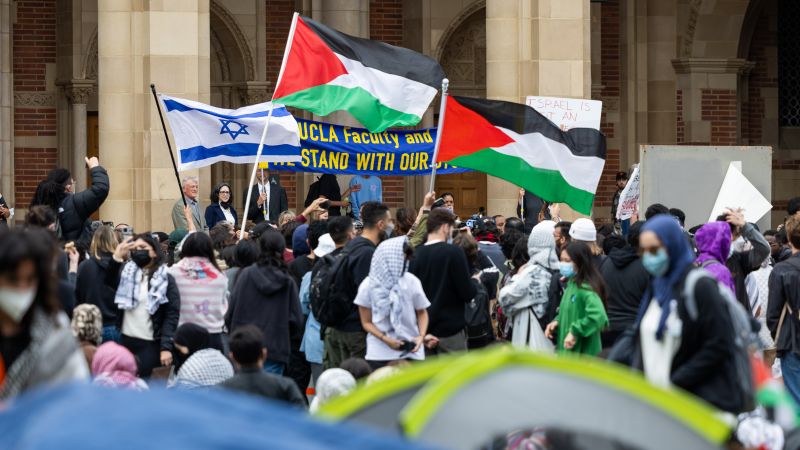The Israeli-Palestinian conflict is a complex issue with deep-rooted historical and political factors that are difficult to capture succinctly. In the United States, college campus encampments have emerged in response to the recent turmoil in Gaza. Students from various backgrounds, including Palestinians, Arabs, Jews, and Muslims, have come together in protest against what they perceive as a continuation of decades-long oppression of Palestinian rights, land, and culture by the Israeli military. These students have been motivated by the reports and videos coming out of Gaza, which they find unbearable to watch, leading them to demand that their schools take a stand against what they believe is genocide.
The campus protests have led to increased incidents of Islamophobia and threats against Jewish students. There have been reports of Jewish students feeling threatened by protesters and encountering antisemitic rhetoric at these rallies. This has raised concerns among pro-Israel politicians and leaders, prompting calls for support for Jewish students and urging protesters and universities to exercise restraint. The surge in antisemitism following recent attacks by Hamas has heightened the need for increased support for Israel, seen as a refuge for Jews who have long faced oppression. Some Jewish individuals, even those critical of the Israeli government’s policies, view anti-Israel and anti-Zionist sentiments as inherently antisemitic due to Israel’s role as a Jewish homeland.
Despite the overwhelming majority of campus protests being peaceful and non-violent, some incidents have resulted in arrests due to trespassing and disruptions to campus activities. While many protesters have engaged in activities like poetry readings, painting, and multi-faith prayers, the actions of some have made Jewish students feel unsafe. University administrators have been criticized for their responses to the protests, with some advocates calling for a more lenient approach towards protesters exercising their right to free expression. The protests have sparked debates over the balance between free speech and safety on college campuses, with both sides expressing valid concerns about the impact of the demonstrations on students.
The complexity of the Israeli-Palestinian conflict extends beyond the campus protests, with divergent views on the conflict’s history, root causes, and potential solutions. The deep-seated divisions among various groups, including Palestinians, Arabs, Jews, and Muslims, reflect the larger global debate surrounding the conflict. As the conflict continues to escalate, the challenges of finding common ground among these groups become increasingly difficult. The protests on college campuses highlight the need for informed and respectful dialogue to address the underlying issues fueling the conflict and promote understanding and peace among all parties involved.
In conclusion, the Israeli-Palestinian conflict remains a contentious and deeply divisive issue that evokes strong emotions and differing perspectives. The recent campus protests in the United States reflect the growing concern and activism surrounding the conflict, with students from diverse backgrounds coming together to voice their concerns. While the protests have sparked debates and raised awareness about the conflict, they have also highlighted the need for respectful dialogue and understanding among all parties involved. As the conflict continues to escalate, finding common ground and working towards peaceful resolutions remain crucial goals for all those impacted by the ongoing turmoil.


